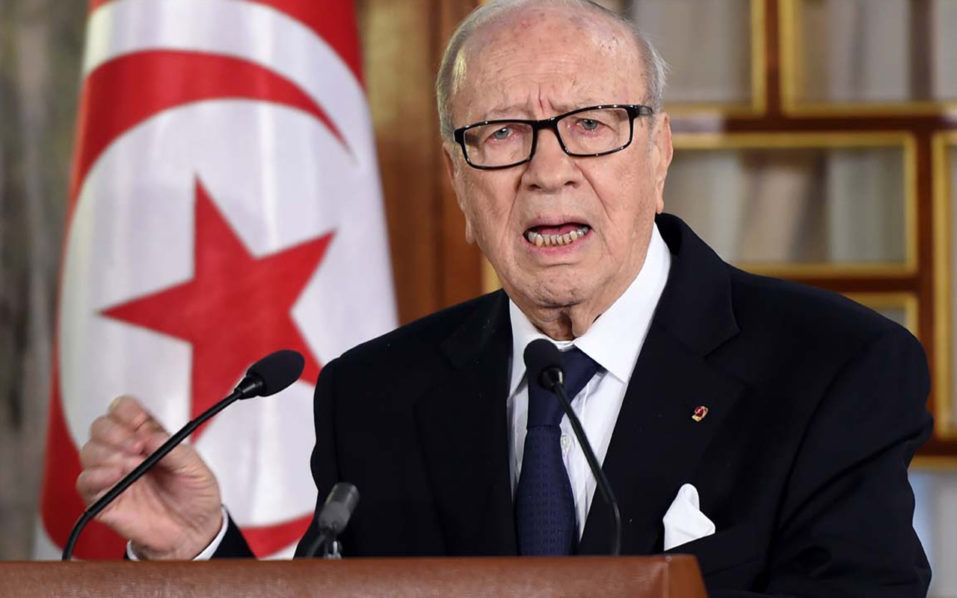Tunisian president Beji Caid Essebsi has proposed Youssef Chahed as a new candidate to replace the north African country’s ousted prime minister Habib Essid.
“I met today with the president… who charged me with forming a national unity government,” Chahed told reporters outside the presidential palace in Carthage.
“This is a message of confidence for young people also,” Chahed said. “In this delicate time we need a lot of audacious decisions.”
Chahed, 40, now has 30 days to come up with a ministerial team.
If appointed, Youssef Chahed would become the 8th prime minister of Tunisia since the 2011 popular uprising in the country.
Parliament ousted Habib Essid in a vote of no-confidence because of his handling of economic reforms and security.
A junior minister in Essid’s government, Chahed is an agricultural sciences specialist and academic who has taught in France and Tunisia, and also a senior member in the secular Nidaa Tounes party.
“Today we are entering a new stage that requires effort, sacrifice, audacity, courage, selflessness and unorthodox solutions,” he told reporters.
He promised that women would be better represented in his cabinet than in previous governments and called for greater youth involvement.
Essebsi had been pushing for a new national unity government in an attempt to overcome political infighting in the ruling coalition and more efficiently tackle economic reforms and the threat of Islamist militants.
Chahed dismissed reports he had any family ties to Essebsi, responding to opposition charges that he was a distant relative of the president. Local media and party sources have also said he has family ties.
Nidaa Tounes and the Islamist Ennahda party, both part of the ruling coalition, control a majority of the seats in parliament, which means Chahed’s nomination is likely to be accepted by lawmakers when they vote on his approval.
Since its 2011 revolution to oust Zine El Abidine Ben Ali, Tunisia has grown into a democracy praised as a model for the region. But militant attacks have tested the government and political infighting has slowed economic progress needed to ease social tensions especially among ranks of young employed.
